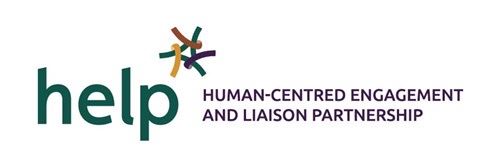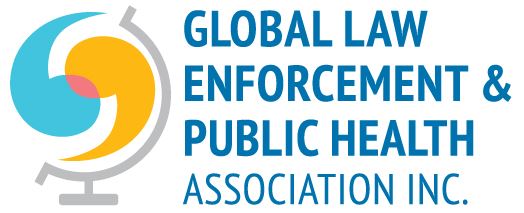
HELP is a client-centred, multi-disciplinary approach with navigation being the critical aspect of the response to the client, who will be directly involved in their individual case and care plan. The ultimate outcome will be reflected in the improvement achieved in each individual’s live situation.
Although HELP officially launched January 2021, the unit has been busy throughout 2020. As the teams of Constables and Navigators formed, they began advocating with numerous external agencies for their support in this new initiative. Over 15 partnering organizations are now supporting the EPS in our mission to navigate people toward more positive sustained outcomes, and ultimately help our vulnerable community members attain a better quality of life, which everyone truly deserves.
With partners onboard, HELP teams began their daily proactive measures, which is the most important piece of this unit. “We’re building relationships between social services and the frontline, as well as the frontline and the community members they’re meeting on a daily basis,” said Navigator Manager Doug Cooke. “This takes many shapes, like casual conversations, responding in a time of crisis, supporting them in their journey or handing out snacks and water as a simple, yet powerful first step to initiate the building of trust among our vulnerable community members.” In many cases, HELP teams build a rapport and discover individual’s basic needs that weren’t being met, or barriers that prevented them from getting support.
“We have given community members a monthly bus pass so they could attend appointments because transportation was their major barrier. Other citizens received assistance completing forms to obtain pension, housing, medical care, or even obtaining identification because they didn’t know who could help them or where to go,” explained EPS’ Social Policing Division’s Acting Superintendent Kellie Morgan. “Then we have the most heartwarming stories. We’ve helped community members gain keys to their own homes; sometimes it’s the first roof over their head in decades. Others are reconnected with family members across the country and our team assists in getting the community member to their family so they can be surrounded by those who love them and can support them.”
Thanks to the partnership with the Katz Group, HELP and additional EPS units like the Heavy Users of Service, and some of our external partners with shared clients, goals, and outcomes, will move into an integrated site in the spring. This co-location will allow agencies to be better aligned in the supports provided to community members, which hasn’t been possible until now. “We believe having multiple agencies co-locate will allow us to develop better plans for our clients now that we will be able to collaborate directly with one another. We will look to create efficiencies and avoid duplication of supports, fill in gaps, and ultimately change lives for the better, while ensuring exemplary services to the vulnerable population within our city,” A/Supt. Morgan said.
Now with the full launch of HELP the unit will expand into their operational/reactive assistance. HELP will take calls from our officers and provide them with support over the phone, have the officer transport the client to our building, or HELP will send a Navigator directly to the client. This is where we will provide the off-ramp option to our officers instead of the traditional option of “arrest, charge, repeat”. We endeavour to break the cycle and be the voice of influence, as we work in partnership and look to resolve the underlying basic humanistic needs that has led this person to this moment.
During regular business hours, officers can contact the HELP Unit via email (helpunitgroup@edmontonpolice.ca) or phone at 780-391-HELP (4357). Note: The automated voice recording is going to be reviewed so we can provide a more simplified and user-friendly service for our members.
HELPing our frontline after hours
HELP is not a 24/7 operational unit. However, there are external partners who are available when we aren’t. If you are interacting with someone who is in need of shelter, transportation, mental health assistance, emergency financial aid, or clothing, go to EPSnet/HELP. We have curated a list of key partners our patrol members can utilize when HELP teams are not available. We also still encourage members to use 211 for an all-encompassing list of partners and the support they can provide our community members.
How do we give HELP?
HELP will be implemented in a phased approach to determine the exact needs of the EPS and the best response to those needs. It is anticipated that there will be a tiered response to the workflow which will be classified into two priorities:
Priority #1
Assist front line police members
Our officers deal with vulnerable people who have complex needs and at times require assistance beyond an officer’s capacity and capability. Working in conjunction with other community resources, HELP’s navigation response team will be available for consults and call outs to assist in delivering the appropriate services that vulnerable people need. This will free up patrol officers to focus on emergency situations, thus achieving demand reduction goals.
Priority #2
Identify people who presently consume, and predict those who will consume, a high number of EPS resources.
Using analytics, HELP will develop preventative tools to identify people who historically and/or currently have a large number of police interactions and consume a substantial amount of EPS resources. These tools will also be used proactively to predict, thus allowing us to intervene with, people who are escalating in interactions with and consumption of police resources.
Civilian Navigators
In order to meet these priorities, not only will we require police members, we will need professionally trained employees with specific knowledge outside of policing. With the highly specialized training and education that is currently found in the private sector, the civilian navigators will be contracted through an external agency. They will become the frontline members’ central contact for consistent advice and assistance to:
Improve our community’s overall quality of life by transforming our approach to address vulnerable peoples’ welfare;
Fill-in the gaps for connecting patrol, specialized units, and EPS programs with appropriate community, health, housing, judicial, financial, addictions recovery, and mental health supports;
Divert calls appropriately to internal EPS programs;
Provide referrals, follow-ups, and case management to vulnerable persons by utilizing external community service providers.
“We plan to deploy HELP and have navigators working with us in the new year,” stated Acting Deputy Chief David Veitch. “We are proud to say that we are moving forward to a future where our most vulnerable people can receive additional assistance with their complex needs, and emergency services can return to their foundations.”
Read more here.
